Research Agenda
The research activities under the umbrella of the project "Steering Regional Integration through Regional Economic Communities in Africa" are carried out by 30 independent researchers in 20 individual research projects.
The key research areas of the project are:
- Institutional Setup of African Regional Economic Communities
- Relational Questions and Implementation in the Member States
- Harmonisation of Laws
Institutional Setup of African Regional Economic Communities
Three of the twenty subprojects deal with aspects relating to the institutional setup of African regional economic communities. These overarching questions are of significant importance for the success of such regional organisations, as their institutional design determines their powers and how decisions can be taken on the regional level.
In a joint subproject, political scientists Alexander Makulilo, Rodrick Henry and Alexander Stroh-Steckelberg are analysing political and legal challenges to the intended East African Federation. Their focus lies on the question as to why this objective has been repeatedly announced by the Heads of East African Partner States while at the same time no significant steps have been taken towards its realisation.
Khoti K. Kamanga's research looks at the concepts of intergovernmentalism versus supranationality, trying to identify which of them, or which combination of them, best suits the needs of African economic communities.
Ada Ordor and Ilyayambwa Mwanawina are involved in a subproject relating to the institutional balance and setup of regional economic communities, with special consideration of the role of regional courts.
Relational Questions and Implementation in the Member States
The relationship between regional organisations and their member states is governed both on the regional and on the national level. One of the major challenges facing African regional economic communities is the high level of legal and factual uncertainty regarding this relationship, which results in huge gaps in implementation of regional decisions.
Richard Frimpong Oppong's subproject provides general insights into ‘The Effectiveness of Community Law in Member States’ Legal Systems’, showing up driving and hindering factors affecting the implementation of community laws and possible ways to overcome the current shortcomings.
An extensive case study of the implementation of EAC legislation in Kenya is being undertaken by Tomasz Milej and Winnie Cheserem. They ask whether Kenya’s constitutional framework can function as a driver for the implementation of regional laws.
Laurean Mussa examines the question why land, being an important factor of production, is not part of the East African Common Market, and how access to land for East African citizens in Partner States other than their own could be achieved.
Ahonagnon Noël Gbaguidi, Eric Dewedi and Hygin Kakai are running an interdisciplinary subproject with a focus on the law of the Organisation for the Harmonisation of Business Law in Africa (Organisation pour l’Harmonisation en Afrique du Droit des Affaires, OHADA), looking at how implementation of harmonised commercial law on the national level and legal certainty in respect of its application could be better achieved.
Two subprojects, one by Mohammed R. Mpuga and another by Ada Ordor and Ilyayambwa Mwanawina , deal respectively with the highly topical issues of recognition and enforcement of foreign judgments and judgments by regional courts.
The implementation of the EAC legislative framework for natural resources and environmental management is being analysed by Hamudi I. Majamba and Evaristo Longopa.
Prof. David Stadelmann
explores whether the customs union of the East African Community (EAC) has increased overall trade per capita for the EAC's founding members Kenya, Tanzania and Uganda.
Harmonisation of Laws
Ensuring the free cross-border flow of factors of production within a common market requires harmonisation of rules related to these factors, in order to avoid unfair competitive advantages for market participants from certain member states. An overview of harmonisation of community laws and regulations in the East African Community, with a focus on customs law, is being worked on by James Otieno Odek and Geoffrey Osoro
Self-evidently, intangible property rights such as trademarks need to enjoy similar protection across the borders of member states in an economic bloc. Anthony Kakooza is thus examining how the EAC could implement a harmonised intangible property protection mechanism for cross-border goods and services in the EAC, including traditional knowledge.
Juliana Masabo is focusing on the role of the Inter-University Council for East Africa regarding mutual recognition of academic qualifications as an essential requirement for labour mobility.
A similar subproject, led by Anatole Nahayo and Michel Ndayikengurukiye, is investigating the complex matrix of mutual recognition agreements between East African Partner States in the field of professional services, linking the findings to the rules on free movement of services within the East African Common Market.
The impact of cyber protection of the consumer is being analysed by Edrine Wanyama .
Johannes Döveling is carrying out a subproject on the liberalisation of air transport markets in the East African Community, taking the newly established Single African Air Transport Market into account.
Jan-Erik Schirmer and Daniel Shayo are working on the harmonisation of company laws in the East African Community, comparing major elements in the national company laws of East African Partner States and suggesting how a harmonised East African company law could be developed.
A subproject entitled ‘Towards a Low-Carbon Future: Assessing Avenues for Translation/Transposition of EAC Climate Change Policies, Laws and Regulations’ is being carried out by Robert Omondi Owino, focusing particularly on the energy sector and its potential to contribute to a greener future.


